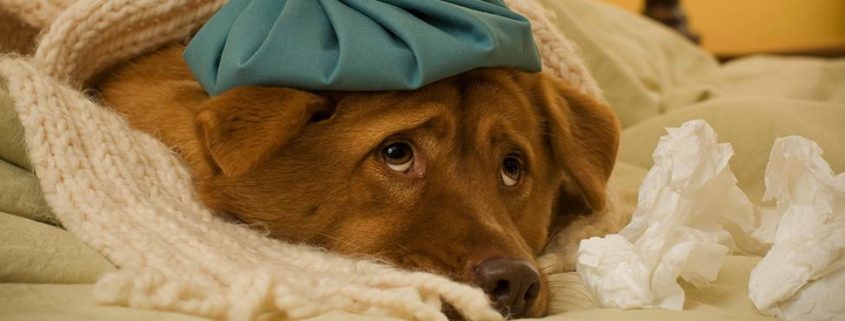Understanding dog flu
We’ve all been there. The winter months bringing with them a bug that leaves you bed ridden with a mug of soup and a lack of sympathy from your friends and family. The flu can really take its toll on you, but did you know that your dog can get it to?
The signs of dog flu – what to look out for
Dog flu, or CIV (Canine Influenza Virus), outbreaks are not usually fatal but do present some serious symptoms that will leave your dog definitely feeling under the weather. Many of the symptoms to look out for are similar to those we experience ourselves and include:
- Runny nose
- Dry Cough
- Sneezing
- Lethargy
- Loss of appetite
- In rare cases, fever and pneumonia
How do I treat canine influenza?
If you believe that your dog has contracted canine influenza, the best course of action is to ring your vet first and make an appointment. Until then you must isolate your dog from any other canines contact to prevent the spread of the virus.
Your dog will need to be kept hydrated as the virus can cause a fever, as well as maintaining lots of rest. If your dog is especially unwell then your vet may want to prescribe medication to help fight the virus.
How to prevent the spread of dog flu
Dog flu is very contagious, and can be spread from dog to dog through shared bowls, toys, and even the same air. Because of how contagious the virus is, outbreaks usually occur in places where lots of dogs are in close proximity to each other such as kennels and dog parks.
Despite its highly contagious nature, CIV does not live long in its environment so isolation is key to stopping the virus in its tracks. To prevent the spread of the virus, you need to minimise any exposure with it. You can do this by contacting your local vet to find out if there are any outbreaks in the local area and avoid as appropriate.
These has been a small insight into canine influenza. If you are worried that your dog may have contracted canine influenza, or for more information about any other canine ailments, we recommend that you seek the advice of a qualified vet.





